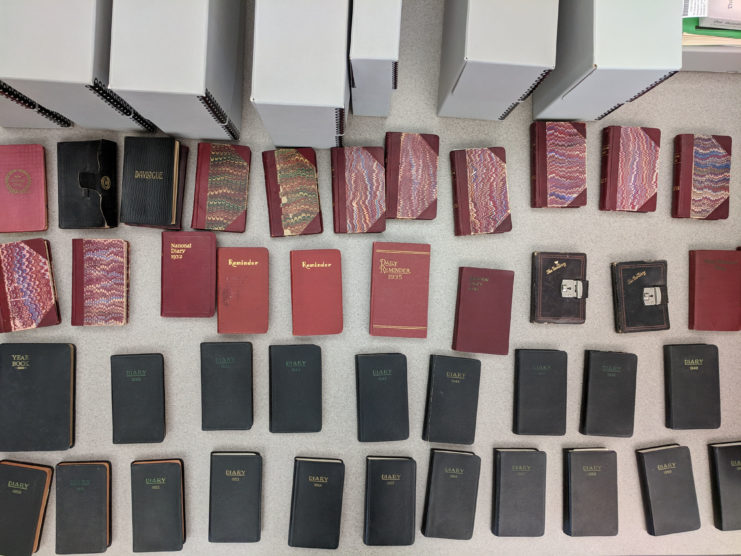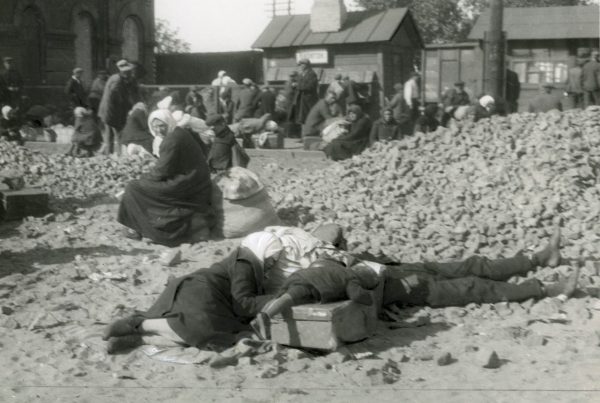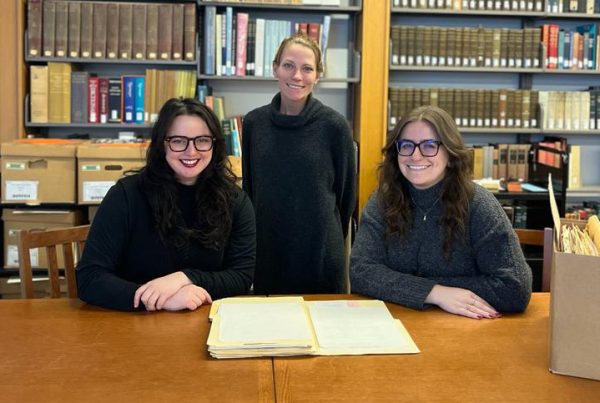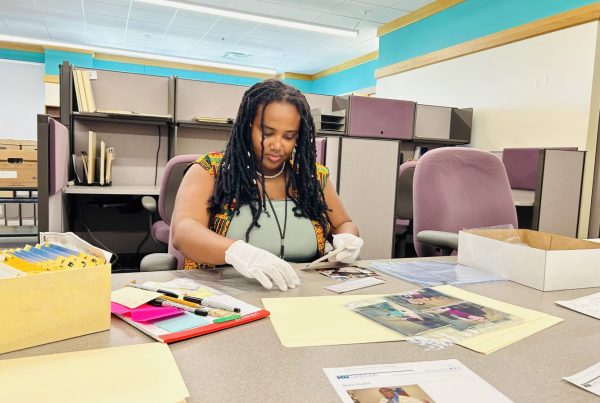By Maura Coonan
Assistant Archivist, Immigration History Research Center Archives
The papers of Tometaro Kitagawa, a collection recently donated to the Immigration History Research Center Archives, is now available for researchers.
Received earlier this year, the collection primarily contains Tometaro’s dairies and their transcriptions, but also includes a few photographs and a catalog from the store Kitagawa owned and operated in Minneapolis, Minnesota. The diaries span 1918-1960, with Kitagawa writing in them daily. Although these entries are sometimes brief, with a total 44 diaries, the collection gives great insight into his life as a Japanese American and small business owner.
Born in 1876, and originally from Omi, Shiga Prefecture (now part of Maibara, Japan), Toemtaro Kitagawa immigrated to the United States around 1900. Although he obtained a bachelor’s degree in Civil Engineering from the University of Wisconsin-Madison in 1911 and had a shop in town, he ended up moving the business to downtown Minneapolis.
It was around this time that the diaries in our collection begin. With his business affairs taken care of, he and his wife Yone, and their three children, Kiyoshi (1914-1990), Nobu (1915-2012), and Miyo (1917-1995) made Minneapolis their home. The Kitagawas were one of the earlier Japanese families to settle in the Twin Cities; a September 5, 1923 Minneapolis Morning Tribune article citing Tometaro stated: “Mr. Kitagawa said that there are only about forty Japanese living in Minneapolis.”
A few years after settling in Minneapolis, a third daughter, Kazuko (1922-2009), was born. In 1928, a fifth child was born, but he only lived one day. Kitagawa’s shop continued to be quite successful during this time, and was so until the mid-1930s. After that, the store began to struggle, and Tometaro was forced to shutter its doors in 1941 when the business/family was bankrupt.
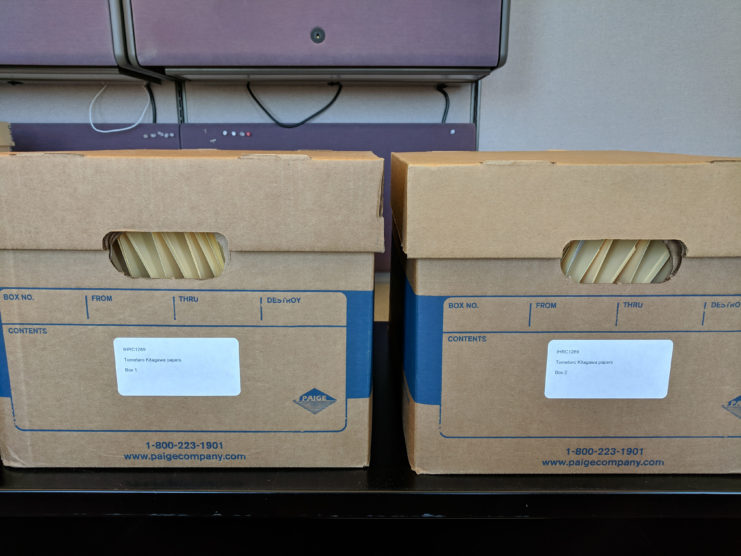
Processed: The Kitagawa papers newly processed, housed and labeled in two carton-sized archival boxes.
Significantly, Tometaro frequently referenced the upheaval caused by the incarceration of Japanese Americans during World War II in his diary entries. Although Tometaro was never himself interned, his son, Kiyoshi, and daughter, Nobu, were. Tometaro chronicles his interactions with them during this time.
Nobu, her husband, and children were living in California at the time Executive Order 9066 was issued and were removed from their home. They were sent to Denson, Arkansas, which was the location of the Jerome Relocation Center internment camp.
Kiyoshi on the other hand, was unable to secure the paperwork to leave California (after heading there to watch over a relative’s ranch when the family member was interned), so he went to “join” his family member at the Poston internment camp.
In an entry from September 11, 1942, Tometaro writes, “Rec’d letter from Matsuko telling us Kiyoshi is working from 7 a.m. to 11 p.m. or some time still late, but he is interested with his work at the camp. But afraid he may tired out mentally and physically in such hot place like Poston.”
Kiyoshi later enlisted in the Army as a way to get out of Poston.
After World War II ended, Tometaro continued to sell Japanese woodprints as a mail-order business from his home, while Yone worked in alterations at Jackson Graves department store in Minneapolis. Tometaro died in 1962, and Yone in 1976. Both are buried at Lakewood Cemetery in Minneapolis.
For more information about the Tometaro Kitagawa papers, or to set up an appointment to view the collection, please email ihrca@umn.edu.
*Note on sources: Information was largely provided by family member Marilyn Lauglo, and supplemented by the Minneapolis Star Tribune (08.11.1920, 12.08.1922, 09.23.1923, 12.18.1935, 12.05.1937, 04.10.1940, 10.11.1962, 06.02.1976) and the Wisconsin Alumni Magazine (vol 14 no 6).


